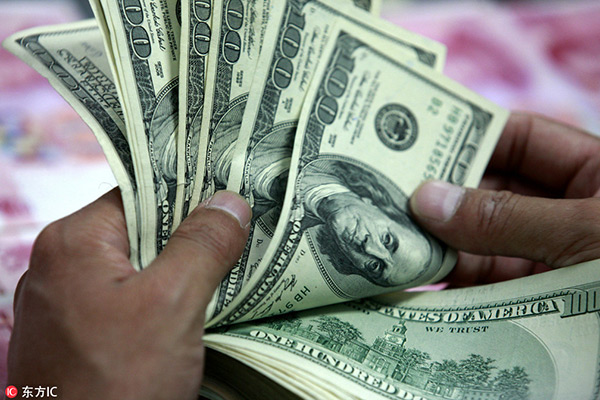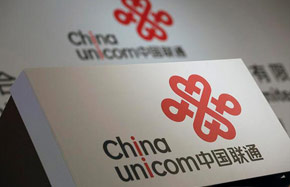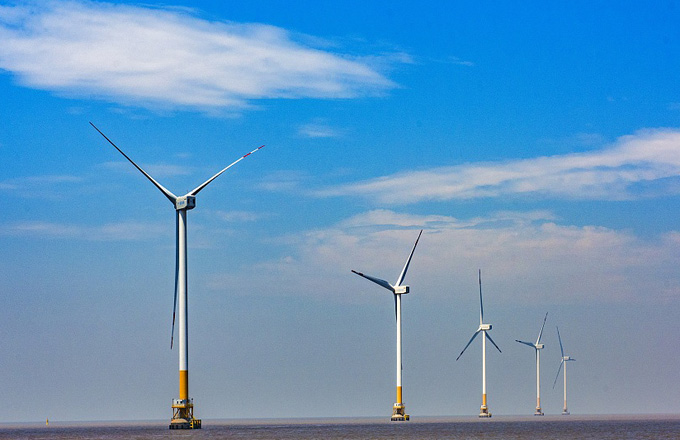China's 'big four' banks to raise billions for Belt and Road deals
 |
|
A Chinese clerk counts US dollar banknotes at a bank in Huaibei city, East China's Anhui province. [Photo/IC] |
The people said China Construction Bank Corp, the country's second-biggest bank by assets, was raising at least 100 billion yuan ($15 billion) for a fund to specifically finance Belt and Road investment.
The people added CCB was raising cash onshore and offshore, and has already been running roadshows with investors.
Bank of China, another major State bank, aims to raise around 20 billion yuan for a similar fund, according to two of the people.
The cash, raised via banks' private equity or other investment platforms, is part of a broader push sponsored by China's central bank to use onshore yuan capital for offshore investments, including Belt and Road deals, according to one of the people.
The other two of China's "big four" banks-Industrial and Commercial Bank of China Ltd and Agricultural Bank of China Ltd-are considering similar fundraising plans, two of the people said.
The people could not be identified as they are not authorized to speak to the media.
The four banks and the People's Bank of China did not immediately respond to Reuters' requests for comment.
President Xi Jinping pledged in May to boost financial support for the Belt and Road Initiative.
An additional 100 billion yuan will be injected into the Silk Road Fund, while China Development Bank and the Export-Import Bank of China will set up special lending plans respectively worth 250 billion yuan and 130 billion yuan to support Belt and Road cooperation.
Beijing is trying to contain overseas deals after some extravagant purchases in recent years, but while private spending on deals has slumped, acquisitions by Chinese companies in countries that are part of the Belt and Road Initiative are soaring, totalling $33 billion as of mid-August.
That compares with a $31 billion tally for all of 2016, showed Thomson Reuters data.
The sources said CCB and BOC would raise US dollars for the offshore portion of their funds and yuan from onshore investors. Some of the onshore capital could be used offshore for Belt and Road deals overseas, two of the people said.
REUTERS-CHINA DAILY



















